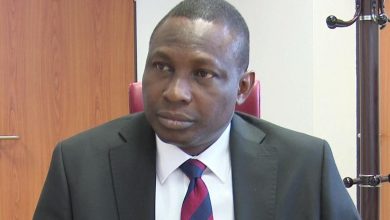AGF Blames Uncoordinated IPPIS–GIFMIS Switch for Salary Crisis in Tertiary Institutions
AGF links salary delays in universities to rushed switch from IPPIS to new payment system.
Officials call for better cooperation and training to fix payroll issues and ensure timely payments.
The Accountant General of the Federation (AGF), Mr. Shamseldeen Ogunjimi, has identified the chaotic and poorly managed transition from the Integrated Personnel and Payroll Information System (IPPIS) to the Government Integrated Financial Management Information System (GIFMIS) as the root cause of the ongoing salary crisis plaguing Nigeria’s federal tertiary institutions.
Speaking in Abuja on Monday during a one-day stakeholder engagement with vice-chancellors, rectors, provosts, and regulatory bodies, Ogunjimi admitted that the abrupt migration between payroll systems without adherence to established technical guidelines disrupted salary payments, third-party deductions, and pension remittances.
Since taking office in March 2025, the AGF revealed he has been overwhelmed with complaints from various quarters, including pension fund administrators, state tax agencies, cooperative societies, and trade unions, over delayed remittances and incomplete payroll disbursements.
To tackle these challenges, Ogunjimi explained that an Interministerial Technical Committee had earlier been constituted to recommend a seamless migration process. According to the committee’s roadmap, the October 2024 payroll was supposed to be processed through the familiar IPPIS platform, while preparatory steps for the full GIFMIS transition were to be completed by the end of that month.
The committee recommended that all staff accounts be validated and uploaded to the GIFMIS platform by October 31, 2024. In addition, institutional personnel were expected to be granted access to the new system’s payroll modules by the same date. IPPIS was to run trial payrolls for November and December 2024, even as the actual payments for those months would be routed through GIFMIS, subject to IPPIS validation and approval by December 31, 2024.
However, Ogunjimi lamented that most institutions failed to comply with the timeline and procedures, resulting in a rushed and uncoordinated switch. “Failure to prepare the trial payrolls and the hasty migration away from IPPIS intensified the disruptions we are witnessing,” he explained.
The AGF added that his office had initiated several interventions, including holding meetings with institutional bursars and launching a joint training program with the Association of Bursars of Nigerian Universities. The training is aimed at helping finance teams better understand and operate the GIFMIS platform.
“Despite all these measures, I continue to receive complaints daily. This interactive meeting was convened so that we can jointly address these lingering concerns,” he stated.
He further announced that the feedback gathered from the meeting would guide the curriculum for the upcoming training sessions and urged full participation from all federal tertiary institutions.
In a goodwill message, the Auditor-General for the Federation, Dr. Shaakaa Chira, commended the AGF for taking a proactive approach in tackling payroll-related challenges. He described the forum as strategic and timely, especially given the recurring financial issues confronting public tertiary institutions.
Chira pointed out persistent lapses such as salary overpayments, irregular employment practices, non-remittance of statutory deductions, and breaches of payroll integration protocols. He warned that these anomalies often lead to audit queries, financial sanctions, and reputational damage for the institutions involved.
He encouraged institutions to openly discuss internal operational challenges like delays in integrating with IPPIS, misclassification of payroll deductions, and inconsistencies in third-party payments. Chira assured that his office would continue to collaborate with the OAGF and other stakeholders to reform and improve financial management in the sector.
Both Ogunjimi and Chira emphasized that solving these issues requires transparency, compliance, and a willingness from institutions to adapt to new reforms tailored to the complexities of Nigeria’s educational landscape. The goal, they noted, is to restore efficiency and trust in the payroll system while ensuring prompt and accurate salary payments for academic and non-academic staff.



